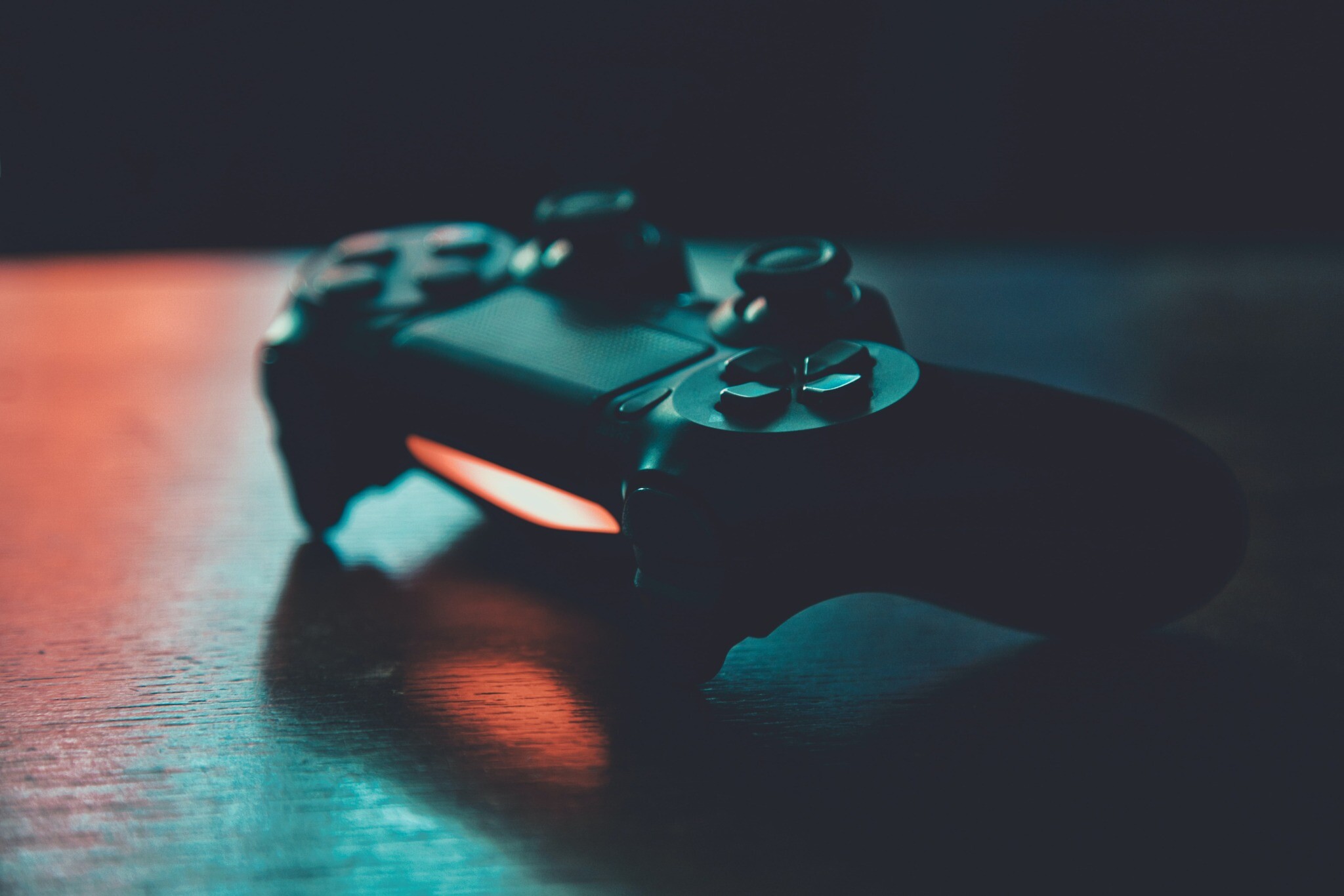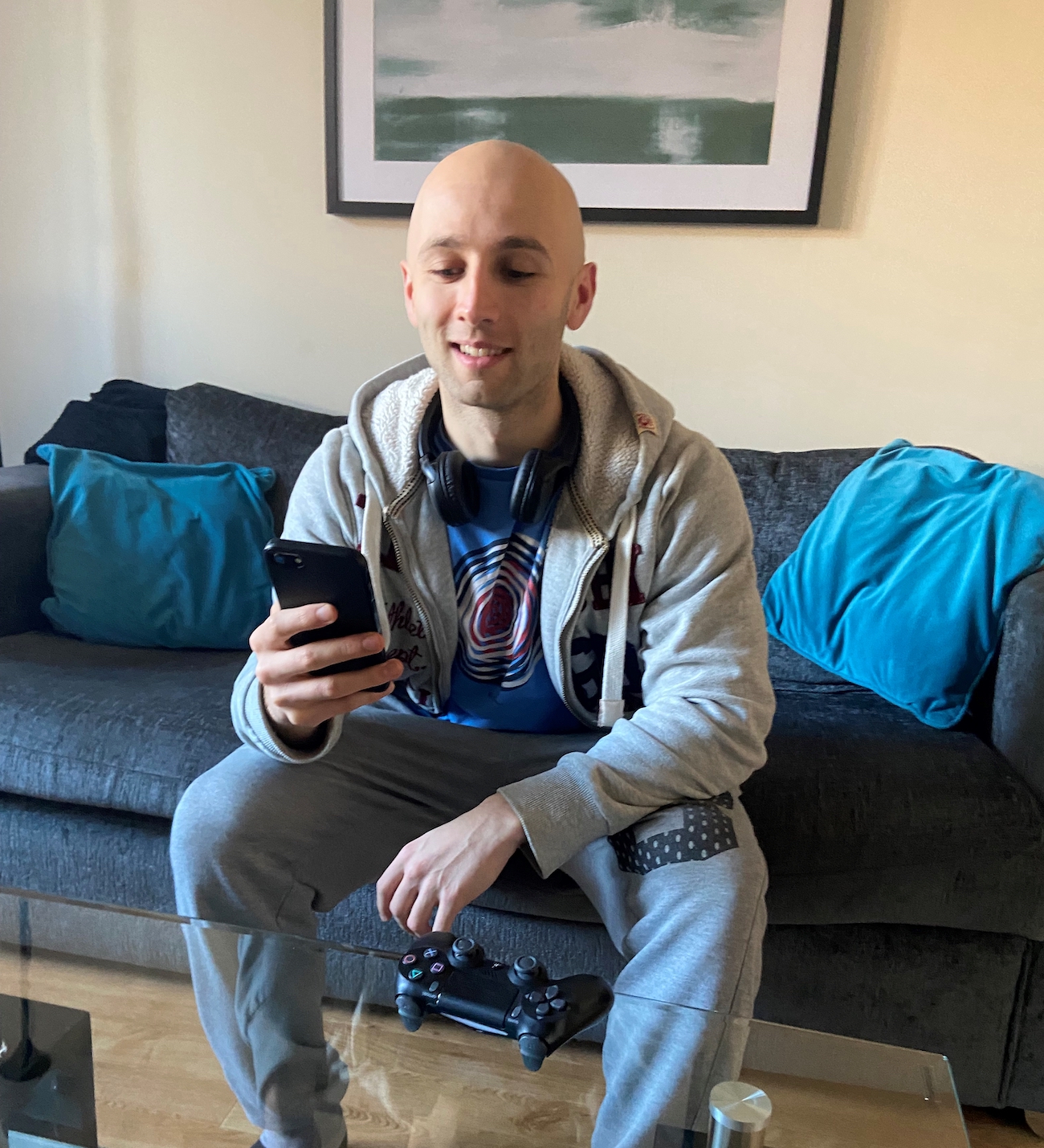The Jewish Earth observer teaching students tech-life balance
Ryan Bell struggled to log-off until a pandemic detox led him to help others
A 26-year-old Jewish man from Essex is watching us all from space. Well, almost. He’s watching us from Luton using a space-based constellation. He should watch my neighbours. I’m sure they’re up to something.
This is Ryan Bell, a cheeky chappie who’s had enough of technology eating up all his waking hours. He wants to help us get a better tech-life balance and has just won an innovation award for developing his thinking into a workshop aimed at students, teachers, parents, and the tech obsessed. That was him, once upon a time.
Innovate UK announced his winnership at the end of January and want to get him some publicity, so he’s talking to me. Ironically, we’re talking on Zoom. I keep wanting to tell him to switch off and chill out.
Having fled Essex for Leeds University to study geography, he graduated into environmental consultancy, before the sexy work began back down south, in Luton, where he is currently an Earth Observation Engineer (EOE) in the space industry.
“My job is to create products, services, and insights based on the data the satellites collect, in industries such as flooding, defence, intelligence, maritime, asset management, or forestry.”
I ask for an example. He thinks. “Yeah, I can own this one because it’s in the public domain.” Own it? I’ve never been cool enough or confident enough to own an example of anything in my life, and I’ve got 15 years on him.
“We worked on a project with the European Space Agency and a research institute called Future Earth for [the UN’s 2021 climate change conference] COP26 using satellite applications for coastal monitoring, specifically post-storm beach response.”

To correlate changing waterlines with erosion and accretion patterns he used radar satellite data from SentinelOne, an Israeli cybersecurity company now listed in the New York, meaning Jews working with Jews to better react to storm events. That’s what we like to hear.
I could talk to him about his day-job all day, but I’m Zooming to talk to him not about how he uses technology but how he doesn’t. Or rather, how he uses it healthily.
“It came about during the pandemic when home-working became the norm and lockdown kicked in. I’m usually quite a social person.” I can tell. This lad’s got some talking in him.
“I got pretty involved in competitive gaming for Fortnite. I was doing alright in competitions, not too far from making money, but the screentime from that, plus the screentime from my role in the space industry, it just became too much.”
Didn’t it hurt your eyes, I ask, sounding increasingly like a Jewish mother? “It did,” he says, squinting. “It built up gradually, likewise the lack of sleep, but they were prices I was willing to pay at the time. I was just more interested in gaming.”
So, a complete screen addict? Long pause. “Yep.” How many waking hours would he spend not looking at a screen? At its most intense, he would spend 15 out of every 16 hours glued to the monitor or phone, he says. Ouch.
“The average 16-24-year-old spends an average of three hours every day just on social media,” he says. “That’s on top of students working from home.”
How did he get his epiphany? Was he visited by the Ghost of Screentime Future? “It was a combination,” he says. “I felt pretty rough. It took a toll on my mental health. And I was struggling in work. My performance slipped.”
Facebook, gaming, and work meant “a lack of sleep, not taking enough breaks,” he says. “It comes in from all angles. It wasn’t an overnight change, it was a slow, incremental degrading of wellbeing, productivity, and my relationships with friends and family.”

Is it an addiction? “Yeah, it’s a behavioural addiction, not as addictive as a drug, but it had a big pull on a large part of my day. Lots of people are the same. They check their phones when they don’t really want to or need to. They’ve built up the habit.”
What led to him going cold turkey? “I wasn’t enjoying myself other than when I was gaming, which fed a negative cycle. And I wasn’t really feeling much, at all. Like, there wasn’t any meaning to anything.” Numb? “Yep, numb.”

He says it took a lot longer to do anything. “Finally, I reached a tipping point and thought something has to change. Right, it’s detox time.” What was that like? “Boring at first.”
Did he have to lock his phone away? “Yeah! A couple of times I gave it to my housemate or threw it to the back of the cupboard.” It sounds a bit like that scene in ‘Trainspotting’ when Ewan McGregor’s character Renton is coming off heroin.
Bell says he “worked out how to get back to technology without slipping into that downward spiral again” and came up with Tech Balance, “a series of workshops designed for students and run by students, that help them find a tech-life balance that is right for them”.
It’s just won him a Young Innovators Award, a £5,000 grant, one-on-one business coaching, and an allowance to cover living costs. More importantly, it’s won him a life and a relationship with an actual person, not a computer game.
“Once I controlled that one aspect of my life – tech – everything else fell into place. I started taking more interest in my health, wellbeing, and fitness. I got back in touch with friends. I also get better sleep now. Devices don’t interfere because I have a one-hour shut-off before bed, when I read.”
Will he ever go back? It seems not. He’s a wide-eyed devotee of phrases like “being present”, which I think is something to do with mindfulness, but always make me think of school classroom registrations. It doesn’t sound very Essex.
“I’m working towards coaching,” he says, listing reams of healthy habits, none of which I do. He looks worried. I think he may be trying to save me. He needn’t. The idea of me being a tech addict would leave our web editor is stitches. I’m not on social media, and Fortnite sounds like two weeks poorly spelled. I’ll be fine.
“The ideal balance is different for every person,” he says, now in full flow. “It’s important not to tell people what to, or what not to do. Let them experiment with what works for them and how they need to use technology.” Amen. Right, I’m logging off.

Thank you for helping to make Jewish News the leading source of news and opinion for the UK Jewish community. Today we're asking for your invaluable help to continue putting our community first in everything we do.
For as little as £5 a month you can help sustain the vital work we do in celebrating and standing up for Jewish life in Britain.
Jewish News holds our community together and keeps us connected. Like a synagogue, it’s where people turn to feel part of something bigger. It also proudly shows the rest of Britain the vibrancy and rich culture of modern Jewish life.
You can make a quick and easy one-off or monthly contribution of £5, £10, £20 or any other sum you’re comfortable with.
100% of your donation will help us continue celebrating our community, in all its dynamic diversity...
Engaging
Being a community platform means so much more than producing a newspaper and website. One of our proudest roles is media partnering with our invaluable charities to amplify the outstanding work they do to help us all.
Celebrating
There’s no shortage of oys in the world but Jewish News takes every opportunity to celebrate the joys too, through projects like Night of Heroes, 40 Under 40 and other compelling countdowns that make the community kvell with pride.
Pioneering
In the first collaboration between media outlets from different faiths, Jewish News worked with British Muslim TV and Church Times to produce a list of young activists leading the way on interfaith understanding.
Campaigning
Royal Mail issued a stamp honouring Holocaust hero Sir Nicholas Winton after a Jewish News campaign attracted more than 100,000 backers. Jewish Newsalso produces special editions of the paper highlighting pressing issues including mental health and Holocaust remembrance.
Easy access
In an age when news is readily accessible, Jewish News provides high-quality content free online and offline, removing any financial barriers to connecting people.
Voice of our community to wider society
The Jewish News team regularly appears on TV, radio and on the pages of the national press to comment on stories about the Jewish community. Easy access to the paper on the streets of London also means Jewish News provides an invaluable window into the community for the country at large.
We hope you agree all this is worth preserving.






















